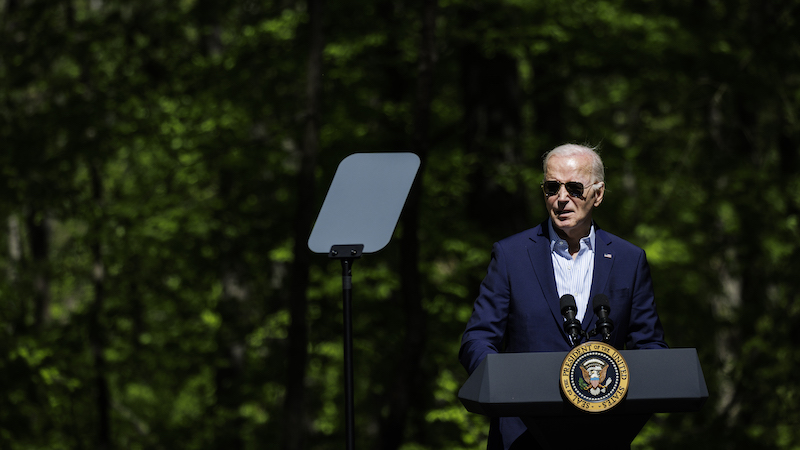The Biden administration throws its weight behind the industry’s attempts to boost integrity in the beleaguered market
The US government is seeking to bolster support for carbon offsets by putting its weight behind industry-led efforts to reform a market that has faced growing criticism.
The Biden administration has laid out for the first time a set of principles that attempt to define how “high-integrity” carbon credits can play “a meaningful role” in helping cut greenhouse gas emissions and channelling “a significant amount of private capital” to combat climate change.
A 12-page policy document released by the US government on Tuesday includes provisions to ensure that carbon credit projects deliver real emission reductions, avoid harming local communities and encourage companies to decarbonise their own operations before buying offsets.
But it also recommends that businesses should be allowed to use carbon credits to cancel out some of the emissions generated by their suppliers and customers, known as “Scope 3”. A similar move by the board of the Science Based Targets initiative (SBTi), a leading arbiter of corporate net zero plans, sparked a major backlash from staff last month.
The US government guidelines are neither binding nor enforceable. However, proponents hope they will reinforce a number of ongoing initiatives led by carbon credit developers, buyers and green groups to raise standards and boost the role of carbon markets in climate and nature protection.
Troubled market
Polluting companies, including major fossil fuel producers and airlines, spent an estimated $1.7 billion last year on voluntary carbon offsets meant to compensate their direct emissions by funding climate-friendly activities elsewhere, such as planting trees or rolling out renewable energy sources.
But a series of revelations questioning the environmental and social benefits claimed by some developers and users of carbon credits have dented confidence in the market.
As South Africa heads to the polls, voters await stalled “just energy transition”
Scientific studies and investigative reports – including by Climate Home – have found that a growing number of projects failed to deliver the emission reductions promised. NGOs have also denounced instances of human rights abuse and environmental damage caused by carbon-offsetting activities.
“Voluntary carbon markets are a huge distraction and a waste of time and resources,” said Mohamed Adow, the Nairobi-based founder of the Power Shift Africa think-tank. “It’s sad to see politicians in the Global North desperately trying to find any way they can to avoid actually just cutting their carbon emissions,” he added.
Every tool needed
In its announcement, the US government acknowledged the shortcomings in voluntary carbon markets (VCMs), saying that “in too many instances” credits do not live up to the high standards required.
“For good reasons a lot of folks outside this room are skeptical,” National Climate Advisor Ali Zaidi told attendees at the policy launch in Washington. “[They are] scared off by news stories of things that went wrong and gloss of greenwash.”
US National Climate Advisor Ali Zaidi speaks during a press briefing at the White House in Washington, U.S., January 26, 2024. REUTERS/Julia Nikhinson
But, he added, that should not be seen as “an excuse to slow down but as an occasion to speed up” and do things better.
The Biden administration wants to be a leader in guiding “the development of VCMs toward high-quality and high-efficacy decarbonization actions”, the White House said. Its principles closely align with those of industry-led governance bodies that are trying to revamp the carbon market.
The Integrity Council for the Voluntary Carbon Market (ICVCM) is currently assessing project methodologies as part of its efforts to establish the first independent global benchmark for “high-integrity” carbon offsets, known as the “Core Carbon Principles”.
“We are in a climate emergency and we need every tool in the box to meet the 1.5°C [global warming] target,” said ICVCM Council Chair Annette Nazareth. “High-integrity carbon credits can mobilise private finance at scale for projects to reduce and remove billions of tonnes of emissions that would not otherwise be viable.”
Substitute for government aid
As most of the world’s largest carbon offsetting projects are based in the Global South, many rich governments view the market favourably as a way of getting dollars to developing nations without tapping into public budgets.
That is the case in the US where climate funding has fallen victim to political polarisation. President Joe Biden promised to increase international climate finance to over $11.4 billion per year by 2024. But Congress approved only a fraction of that as part of this year’s government budget: $1 billion of a spending package totalling $1.59 trillion.
Read More


